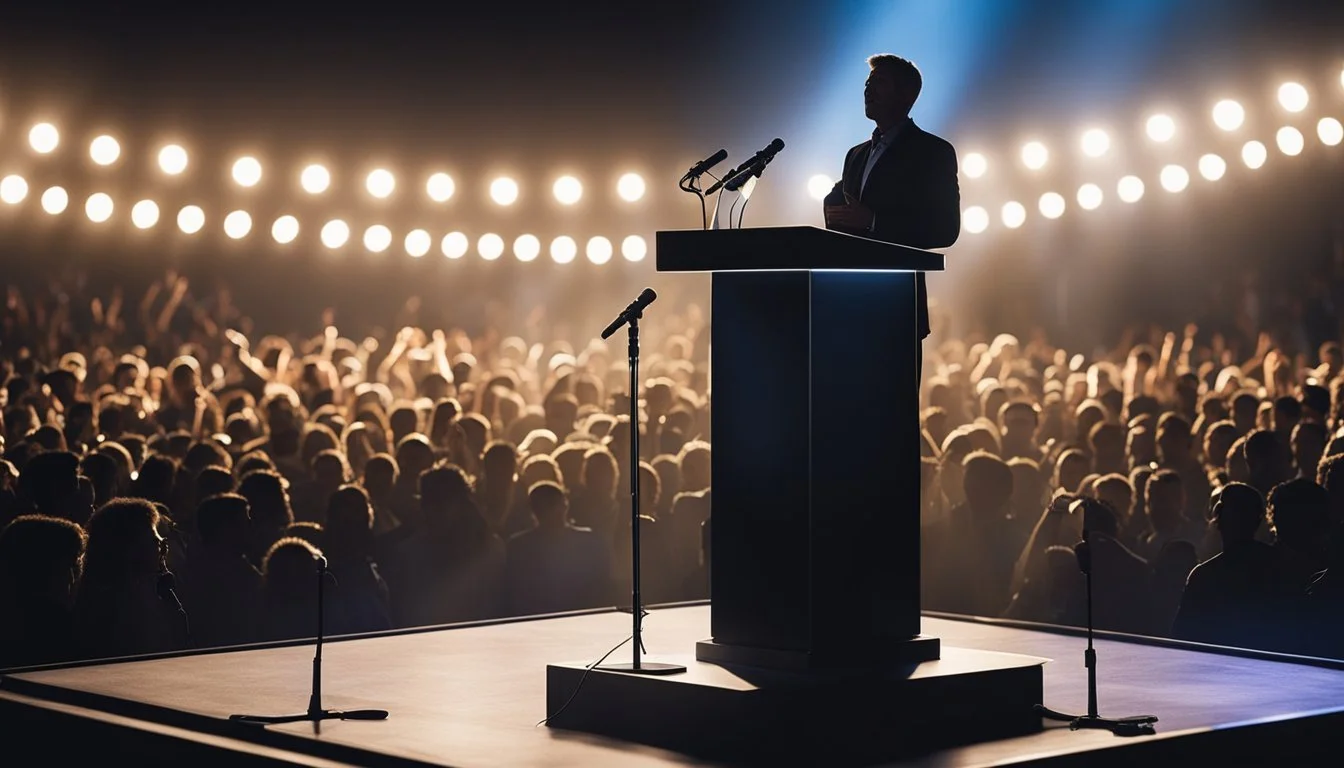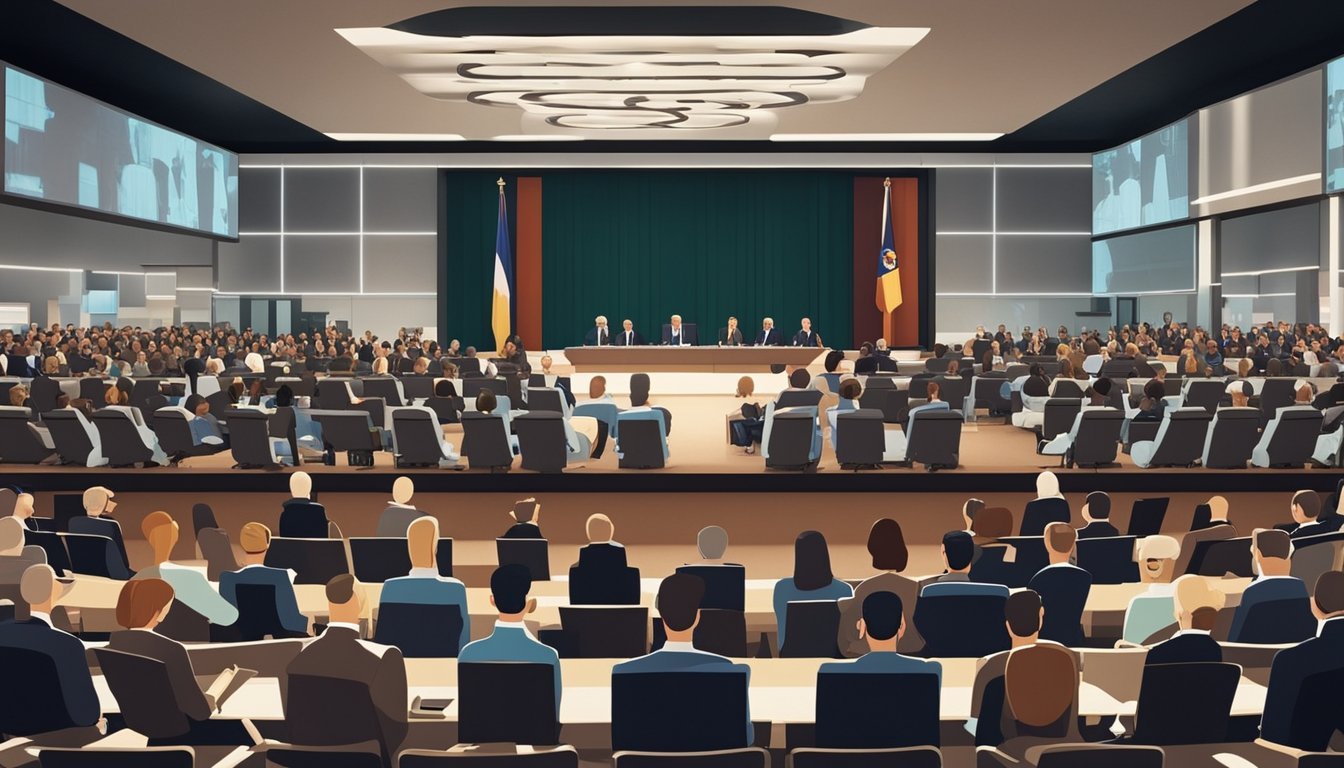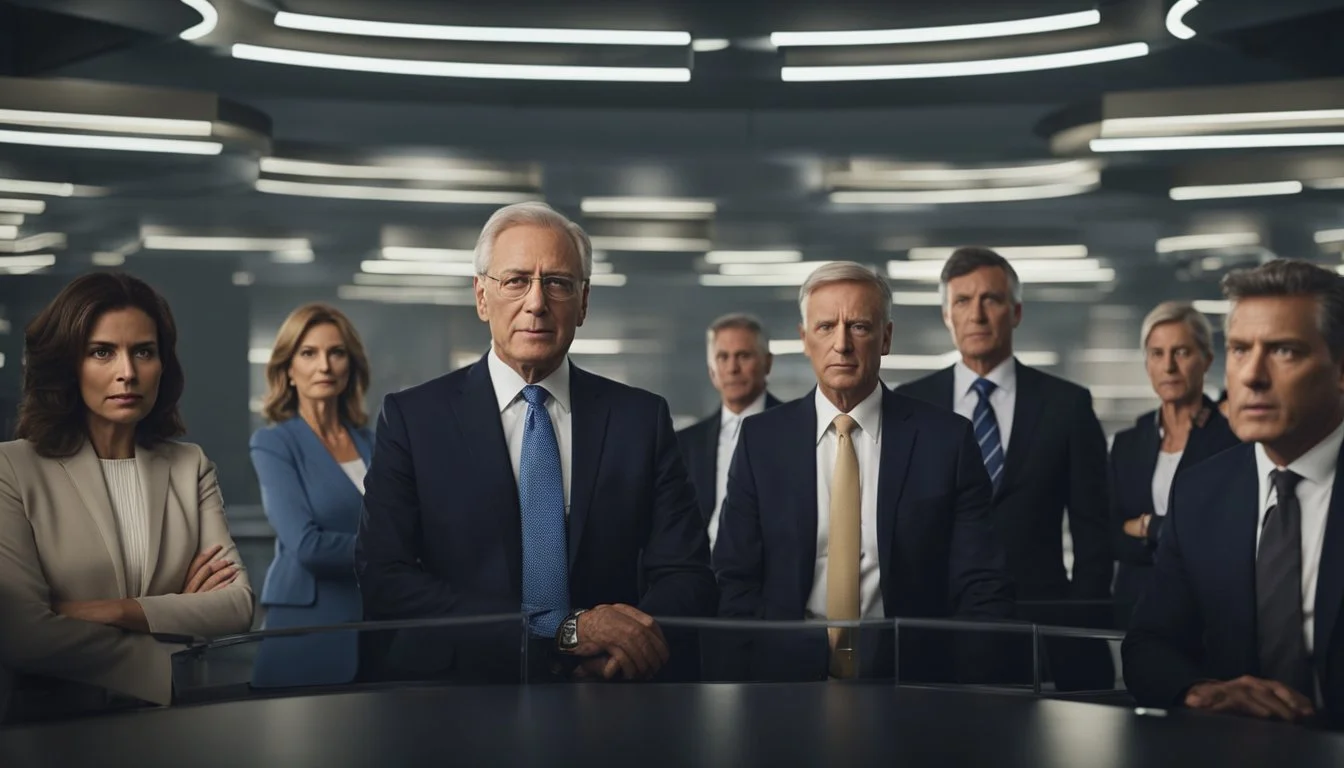5 Documentaries on Political Power Struggles
Unveiling the Machinations of Leadership
In an era where politics shapes the very fabric of society, documentaries offer a profound insight into the complexities and nuances of political power struggles. By shedding light on hidden truths and behind-the-scenes machinations, these films empower viewers to better comprehend the forces at play in global and national governance.
Understanding the intricate dynamics of political power is crucial for anyone engaged with contemporary issues. Through powerful storytelling and in-depth analysis, these documentaries reveal the mechanisms of influence, control, and resistance, providing a valuable perspective on the political landscape.
1) The Fog of War (2003)
The Fog of War: Eleven Lessons from the Life of Robert S. McNamara is an American documentary film directed by Errol Morris. This film examines the complex life of Robert S. McNamara, the U.S. Secretary of Defense during the Kennedy and Johnson administrations.
Using a combination of archival footage, recordings, and interviews, the documentary delves into McNamara's insights on modern warfare and his role in the Vietnam War. The film is structured around eleven lessons that McNamara presents, revealing the complications and moral ambiguities in military decisions.
The score by the renowned composer Philip Glass adds a compelling layer to the film. The title "The Fog of War" refers to the confusion and unpredictability that can occur in battle.
The documentary won the Academy Award for Best Documentary Feature and serves as a profound exploration of power, ethics, and the harrowing reality of war.
For more information, visit The Fog of War on IMDb.
2) 13th (2016)
13th, directed by Ava DuVernay, scrutinizes the intersection of race, justice, and mass incarceration in the United States. The film's title references the 13th Amendment to the U.S. Constitution, which abolished slavery but allows involuntary servitude as a punishment for crime.
The documentary presents a timeline of significant historical events and policies that criminalized African Americans. It also examines the economic motives behind the prison industrial complex. Through expert interviews and powerful narratives, it argues that the legacy of slavery persists in modern America.
High-profile figures such as Angela Davis and Van Jones provide insights, enriching the documentary's narrative. Their perspectives highlight systemic issues and suggest the need for profound societal change.
For more information on the film, visit 13th on Wikipedia.
3) The Untold History of the United States (2012)
Created, directed, produced, and narrated by Oliver Stone, this documentary series delves into major events in American history. It challenges traditional narratives by exploring hidden stories and lesser-known facts.
The series investigates the reasons behind the Cold War. It analyzes the decision to drop atomic bombs on Japan and how this shaped America's role in the world.
Over twelve chapters, viewers are presented with newly uncovered archival material. Stone's collaboration with historian Peter Kuznick adds depth and perspective to each episode.
The documentary tackles the evolution of political power within the United States. It highlights the strategies and decisions that have influenced the nation's position globally.
For those interested in a different perspective on U.S. history, this series offers a critical, in-depth look at pivotal moments.
4) The Square (2013)
"The Square" by Jehane Noujaim documents the Egyptian Revolution of 2011. The film captures the experiences of activists over a two-year period, from the initial optimism of Mubarak's fall to the later disillusionment.
The documentary focuses on the lives of three main characters: Ahmed Hassan, Khalid Abdalla, and Magdy Ashour. It presents their personal stories and the struggles they face during the revolution.
Ahmed Hassan's infectious enthusiasm and dedication stand out. Despite the challenges, his commitment to the cause remains steadfast.
Khalid Abdalla, an actor who gained fame in Hollywood, returns to Egypt to join the protests. His perspective provides a unique view of the revolution from both an insider and outsider standpoint.
Magdy Ashour, a member of the Muslim Brotherhood, navigates the complex political landscape. His story highlights the often conflicting loyalties during times of upheaval.
The film emphasizes the tension between hope and disappointment. It portrays the activists' relentless pursuit of change and the harsh realities they face.
"The Square" has received critical acclaim for its in-depth and personal portrayal of the revolution. It offers a real-time view of the monumental events that shaped modern Egyptian politics.
For more detailed information, visit IMDB.
5) Winter on Fire (2015)
"Winter on Fire: Ukraine's Fight for Freedom" is a documentary directed by Evgeny Afineevsky. It captures the intense political struggle in Ukraine during the Euromaidan protests from November 21, 2013, to February 23, 2014.
The film provides a raw and up-close depiction of the conflict, starting from peaceful student demonstrations to a violent revolution. It shows the resilience and unity of the Ukrainian people in their pursuit of democracy and freedom.
Through firsthand footage, interviews, and on-the-ground reporting, the documentary highlights the brutality faced by protesters as well as their unwavering determination. It paints a vivid picture of the sacrifices made and the human stories behind the headlines.
"Winter on Fire" was nominated for an Academy Award for Best Documentary Feature, showcasing its impact and the importance of the events it covers. It stands as a testament to the power of collective action in the face of oppression.
For more information, visit the Wikipedia page.
The Role of Documentaries in Understanding Political Power Struggles
Documentaries serve as essential tools in illuminating the complexities of political power struggles. They bring critical historical events and perspectives to wider audiences, fostering both awareness and education.
Impact on Public Perception
Documentaries shape public perception by providing visual narratives that are often more engaging than written reports. By featuring interviews with key figures, eyewitness accounts, and archival footage, these films offer a tangible sense of reality.
High-profile documentaries, such as "The Secret Government: The Constitution in Crisis," expose hidden mechanisms of power. These revelations can shift public opinion and inspire civic action.
Documentaries also highlight the personal impacts of political decisions. Personal stories create empathy and a deeper connection to issues that might otherwise seem distant or abstract.
Educational Value
Beyond influencing public perception, documentaries serve as educational resources. They simplify complex political topics, making them accessible to a broad audience. Films like "American Factory" provide detailed case studies, illustrating the real-world implications of political policies.
Educators frequently use documentaries as supplementary materials to engage students in current events and historical studies. These films present comprehensive overviews that are beneficial for learning and discussion.
Documentaries also encourage critical thinking. By presenting multiple viewpoints and exploring controversies, they prompt viewers to analyze and question established narratives.
Key Elements of Political Power Struggles in Documentaries
Political documentaries often focus on the historical context in which events occur and the personal narratives that bring these struggles to life. By doing so, they provide a deep analysis of the events and individuals involved, showing the human impact of political power struggles.
Historical Context
Historical context in political documentaries is crucial for grounding the viewer in the time and setting of political power struggles. Important historical events provide a foundation that explains why conflicts arise and how they evolve. For instance, documentaries may explore the implications of significant legislative acts, wars, or economic crises that shape political landscapes.
The role of government institutions is often highlighted to show how systems of power operate and influence outcomes. This allows viewers to grasp the many-layered complexity of political struggles. By providing a backdrop of historical events, the documentary ensures that audiences can follow the cause-and-effect relationships that drive political action.
Personal Narratives
Personal narratives offer a compelling way to understand political power struggles by focusing on the experiences of individuals directly involved. These can include stories of political leaders, activists, and ordinary citizens who are affected by political decisions and conflicts.
Such narratives emphasize the human dimension of political power, conveying emotions and personal stakes that numbers and facts alone cannot. By showcasing personal hardships and triumphs, documentaries make political struggles relatable and poignant. These stories often reveal the motivations, beliefs, and sacrifices that drive people within the larger political framework, deepening the viewer's insight into the human impact of political power struggles.
Analyzing Cinematic Techniques in Political Documentaries
In political documentaries, filmmakers employ specific techniques to convey the intricacies of power struggles. Key methods include the use of archival footage and interview methods.
Use of Archival Footage
Archival footage serves as a crucial tool in political documentaries. It provides historical context and authenticity to the narrative. This footage can include past news broadcasts, speeches, or personal archives of political figures.
Utilizing archival footage helps bridge past and present events, illustrating the continuity or change in political dynamics. It also enhances credibility, offering firsthand documentation of events. Filmmakers often integrate these visuals seamlessly to retain viewers' engagement and support the documentary's argument.
Strategically selecting and pairing archival clips with contemporary interviews or narration offers a layered understanding of political events. The combination of different historical snapshots can illustrate the evolution of political power structures effectively.
Interview Methods
Interview methods in political documentaries are designed to elicit detailed and insightful commentary. Filmmakers may interview key political figures, experts, or those directly impacted by political events.
The setting, questions, and interview style can significantly influence the information revealed. Some directors prefer a formal setting to maintain a serious tone, while others might choose informal environments to make subjects comfortable.
Varied perspectives enrich the narrative and ensure a balanced portrayal of events. Through careful editing, interviews can highlight contradictions, reinforce themes, and build a compelling storyline. These methods humanize abstract political concepts by focusing on personal experiences and testimonials, making the political struggles more relatable and vivid for viewers.



